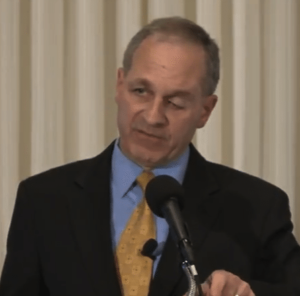Former Head of FBI Warns Law Enforcement Will be Unfairly Burdened by Foreign Drug Importation Proposals
In an editorial published in the Philadelphia Inquirer, Louis J. Freeh, former director of the FBI and former federal judge, warns that allowing American citizens to purchase medicine from foreign countries puts them at risk from counterfeit drugs, would incentive criminal organizations to make counterfeit drugs, and places more stress on law enforcement efforts to combat the issue.
Freeh continues that current proposals introduced to allow drug wholesalers, licensed U.S. pharmacies, and individuals to import prescription drugs from Canada would remove the safeguards that currently protect our drug supply chain and would be an invitation to drug cartels, who have no moral issue about expanding their businesses at the expense of our nation’s health. Freeh expresses the opinion that drug importation proposals, “will vastly increase the incentive for criminal organizations to counterfeit drugs.” He warns, “Current proposals would take away one of the most effective means to protect our prescription-drug supply and leave U.S. and international law enforcement vulnerable to criminal organizations seeking to infiltrate our prescription-drug supply with fake, adulterated, and counterfeit drugs.”
Freeh connects the importation proposals with the current US case against the largest Canadian online pharmacy that is under indictment for allegedly selling $78 million worth of unapproved and counterfeit medicines administered to cancer patients and other cases involving more than 2,000 doctors across the country. Says Freeh, “These cases could be prosecuted because of our closed, FDA-supervised drug distribution system that requires all manufacturers, distributors, and sellers to be licensed and subject to oversight. The importation proposals before Congress take away these critical protections. Each case required a multi-year, multi-agency collaborative investigation.”
Additionally, the U.S. is in the middle of an opioid crisis made worse by the introduction of fentanyl, a potent synthetic opioid, hidden in counterfeit pills. Freeh warns that it is easier for the cartels to ship and has better profit margins than other illicit drugs.
Freeh states that allowing drug importation would increase the volume of counterfeit drugs to such a degree that it would be impossible for the U.S. Food and Drug Administration (FDA), U.S. Customs and Border Protection (CBP) and the DEA to keep up with the rapidly expanding criminal operations. The strain that allowing drug importation would have on law enforcement agencies must not be underestimated. There is a range of criminal threats both at home and abroad. The same resources and budget have to handle more. Allowing drug importation would only put more pressure on already taxed law enforcement agencies.
Freeh closes by saying “Allowing citizens to purchase medicine direct from foreign countries will mean more risk to consumers from counterfeit drugs, more opportunity for criminal activity in the marketplace, and more stresses placed on overstressed law enforcement efforts to combat this problem.” He also points out that the commonly-held belief that consumers can purchase prescriptions safely from abroad without fear of ending up with fake medication is unrealistic, and will put immense pressure on U.S. law enforcement.
Louis J. Freeh also spoke at PSM’s “Risking Safety At All Costs”, held April 4th, 2017 in Washington DC at The National Press Club.
